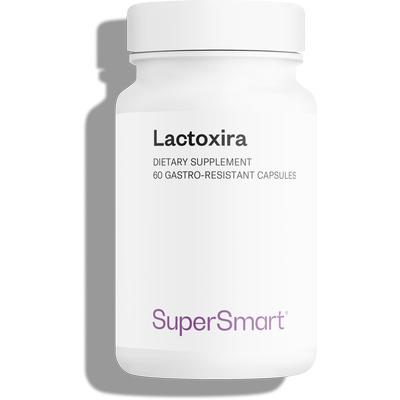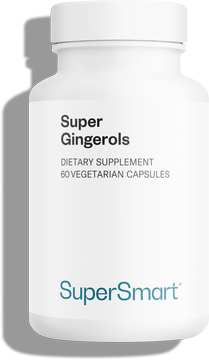Modifying the gut microbiome to treat autism?
In a recent study, researchers transferred the microbiota of non-autistic children to 18 autistic children. What were the results? What do they tell us about the gut-brain axis?

Recap: what is autism?
As a brief reminder, autism is a neuro-developmental disorder that potentially affects communication, social interaction, intellectual ability and behaviour (depending on the case, this can manifest in emotional outbursts, repetitive movements, fear of change...)
It’s estimated that 1 in 160 people worldwide has an autism spectrum disorder.
Study suggests that symptoms of autism may be reduced by microbiota transfer
Digestion-related problems (diarrhoea, bloating, regurgitation, constipation…) were already known to be unusually common in autism, with 75% of autistic individuals experiencing at least one such symptom - an early indication of a potential link between autism and problems in the gut.
Here, we’re looking specifically at the gut microbiota (the collection of microorganisms that colonise the digestive tract) of autistic people.
In a US trial published in 2019, conducted by researchers at Arizona State University, the healthy microbiota of non-autistic children was transferred to 18 children with autism (2). The results were both surprising and encouraging: there was a significant reduction in both gastrointestinal and ASD symptoms in the 18 young recipients.
In fact, by the end of the trial, the treatment had reduced the severity of GI symptoms by around 80% and ASD symptoms by around 24% (3). These improvements were still evident two years later, with a 59% reduction in GI problems, and this time, a reduction of up to 47% in ASD symptoms.
What’s more, the number of children presenting with severe autism problems had fallen from 13 at the start of the study to only 3 by the end of the trial. And 8 were no longer considered to be within the autism spectrum at all following the treatment.
It’s worth noting, however, that faecal microbiota transplants do carry some risks (possible infections, transfer of antibiotic-resistant bacteria…)
The microbiota’s influence on neurological development
Digging a little deeper, we know that bacterial colonisation of the gut begins during prenatal development. The composition of this early microbiota can have a beneficial or adverse effect on the development of the foetus. An unhealthy diet, a microbial infection or metabolic stress may alter the gut flora and thus influence the foetus’ neurological development, potentially leading to lifelong behavioural changes.
Indeed, in a study led by California’s Institute of Technology, the introduction of a viral infection to pregnant mice resulted in the birth of less sociable, more anxious baby mice. These young animals seemed to be missing the bacterial species Bacteroides fragilis. Once these ‘autistic’ mice had been fed this particular bacteria, their digestive and social problems decreased (4).
The gut contains its own nerve cells
All these studies and reflections remind us more generally of the crucial link between the gut and the brain.
Several studies had already focused on this gut-brain axis. For example, researchers had succeeded in changing the behaviour of two groups of mice by swapping their microbiota, resulting in bolder, more daring mice becoming fearful and timid, and vice versa (5).
For its part, the human gut contains 200-500 million nerve cells. It’s a complete nervous system in its own right, referred to as the enteric nervous system. While our brains contain far more of these nerve cells or neurons (90 billion in fact), 200 million is still equivalent to that found in the brain of a cat or small dog. That’s why the gut is often referred to as a ‘second brain’.
How do these 200 million neurons communicate with their counterparts in the brain? In two ways: through transmission of electrical information by the nerves and chemical information by the blood.
For example, 95% of serotonin (a neurotransmitter which regulates certain types of behaviour such as mood and emotional sensitivity) is produced directly in the gut.
Studies have identified an imbalance in the composition of gut microbiota (too many ‘bad’ bacteria compared with ‘good’) in rodents exhibiting depressive behaviour (6). The same is true of humans: in a study involving 37 individuals, researchers observed under-representation of Bacteroidetes and over-representation of the genus Alistipes in the intestines of patients with depression (7).
Probiotics: restoring the balance of gut microbiota to improve mood and behaviour
Probiotics are defined by the WHO as “live microorganisms which, when administered in adequate amounts, confer a beneficial health effect on the host, beyond traditional nutritional effects”. They are widely used today to help rebalance the gut microbiota.
Certain strains are attracting particular scientific interest for their positive effects on the brain, affecting behaviour, mood, emotions... A meta-analysis published in 2016, which reviewed 25 animal studies and 15 human trials (8) highlighted the following microorganisms:
- Bifidobacterius longum (which may reduce symptoms of depression);
- Lactobacillus plantarum (with possible neuroprotective properties);
- Lactobacillus casei (which may increase concentrations of tryptophan and serotonin, producing a noticeable improvement in mood in people prone to depression);
- Lactobacillus brevi (which may be effective against anxiety);
- Lactobacillus salivarius (potentially the most active of them all).
All these microorganisms are combined in certain multi-strain probiotics (such as Lactoxira) which can be taken by those suffering from mood disorders, or who are feeling low or demotivated.
SUPERSMART ADVICE
References
- Horvath K, Perman JA. Autism and gastrointestinal symptoms. Curr Gastroenterol Rep. 2002 Jun;4(3):251-8. doi: 10.1007/s11894-002-0071-6. PMID: 12010627.
- https://news.asu.edu/20221214-discoveries-study-finds-microbiota-transfer-therapy-provides-longterm-improvement-gut
- https://microbiome-foundation.org/la-recherche/projet-autisme-et-microbiote/
- https://www.futura-sciences.com/sante/actualites/biologie-autisme-transfert-microbiote-intestinal-montre-son-efficacite-50780/
- https://www.europe1.fr/sante/les-bacteries-de-notre-intestin-impactent-elles-notre-sante-mentale-2987042
- Dinan TG, Cryan F. Melancholic microbes: a link between gut microbiota and depression ? Neurogastroenterol Motil.2013;25(9): 713–9.
- Jiang H, Ling Z, Zhang Y, et al. Altered fecal microbiota composition in patients with major depressive disorder. Brain Behav Immun. 2015 Apr 13. pii: S0889-1591(15)00110-5. doi: 10.1016/j.bbi.2015.03.016.
- Wang, H., Lee, I. S., Braun, C., & Enck, P. (2016, October). Effect of probiotics on central nervous system functions in animals and humans: A systematic review. Journal of Neurogastroenterology and Motility, 22(4), 589–605. doi:10.5056/jnm16018
Keywords
4 Days
The products I use are excel·lent
The products I use are excel·lent
ROSAS Josep Maria
12 Days
Delivery is prompt and I never saw a…
Delivery is prompt and I never saw a quality problem with the manufacturing. It is not possible to assess efficacy on a personal basis, since too many factors come into play. Efficacy can only be assessed statistically with a sufficient number of cases.
Roger De Backer
13 Days
I collaborates with the Supersmart…
I collaborates with the Supersmart more than 10 years. Every thing is going good. Quality of the things is good. Delivery comes in time. Five stars definitely !!!
Oleksiy
13 Days
All good
Simple, frictionless site, easy ordering, good delivery updates and execution.
Chris Robbins
15 Days
I feel better
I feel better
Peter Ammann
16 Days
Prompt delivery
Prompt delivery
JAKUB Radisch
17 Days
My new go-to for top quality supplements!
I am buying more and more of my supplements from this superb, high quality company. Cannot recommend it enough. Plus, excellent customer service with a quick, helpful team and speedy deliveries. Highly recommend Supersmart!
Cecilie H.
20 Days
SUPERSMART WHAT ELSE👍
SUPERSMART WHAT ELSE👍
DIEDERLE Christophe
23 Days
Excellent quality products with…
Excellent quality products with innovative formulas, as someone who has been suffering with acid reflux, these supplements have been lifesavers.
Oriana Moniz
24 Days
high quality supplement!
high quality supplement!
GALANT
24 Days
Good service prompt delivery
Good service prompt delivery
Mrs Marcella Reeves
29 Days
I like your clear explanation
I like your clear explanation. And how to make a choice of products for a specific health problem
Ingrid
35 Days
Great product and it arrives quickly.
Great product and it arrives quickly.
SOMMARIVA Gianni
37 Days
Excellent products and fast service.
Excellent products and fast service. What do we need more?
Margarida
41 Days
The variety of products is amazing
The variety of products is amazing, the offers are good and the sending is very fast. I just miss having a bit more of guidance about combinations, possible interactions, etc.
Maria Angeles Verdu






